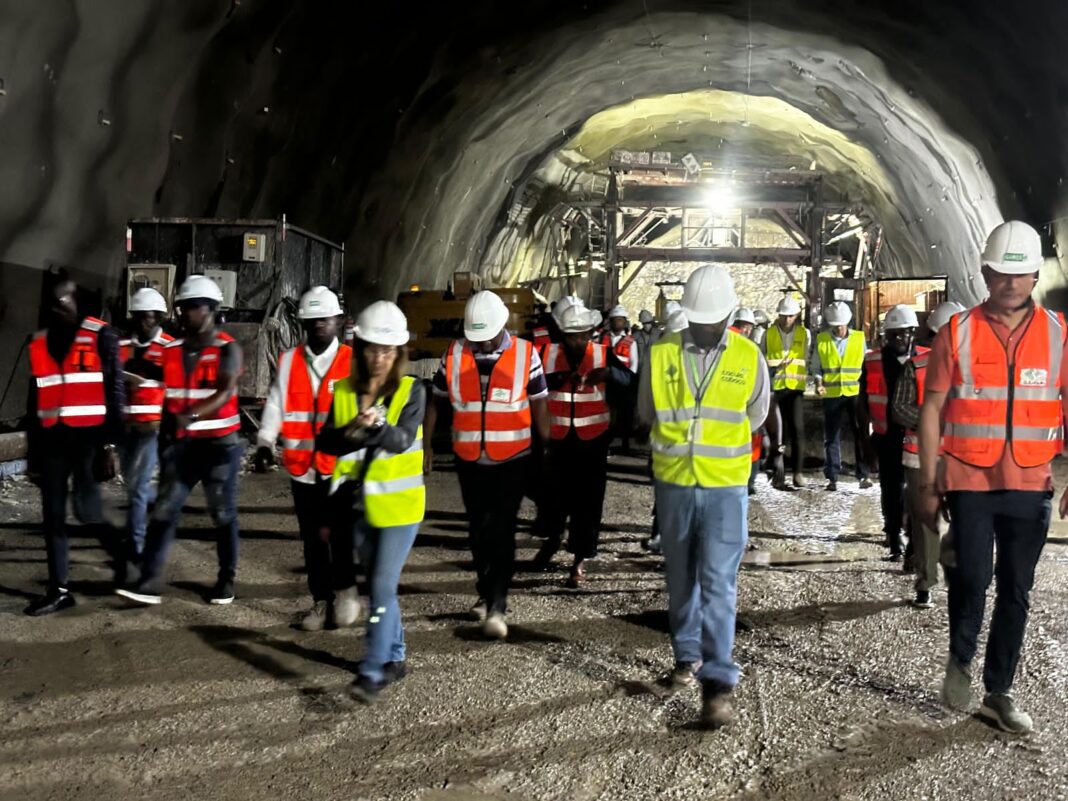Today, on February 1st, the Minister of Energy and Water, João Baptista Borges, visited the Caculo Cabaça dam in the province of Cuanza Norte to evaluate the progress of the construction and chair the meeting of the Project’s Steering and Monitoring Committee.
At the outset of the visit, the minister, accompanied by industry technicians, conducted an extensive guided tour of the dam’s construction site.
Standing at a height of 113 meters, the Caculo Cabaça dam will boast a nominal capacity of 2,172 MW, divided between two plants. The reservoir will have a useful volume of 92.6 hm³, equipped with five groups and a hydraulic circuit with a nominal capacity of 1100 m³/s.
The project also encompasses two electrical substations of 400 kV and 220 kV linked to the main and ecological plants, respectively. It comprises three main components: the temporary diversion of the river, the primary civil works, and the procurement, installation, and commissioning of electromechanical equipment. The construction period spans 80 months. This initiative is part of the country’s initiative to enhance its electricity production capacity.
It is noteworthy that on May 20, 2023, the President of the Republic, João Manuel Gonçalves Lourenço, initiated the symbolic diversion of the river.
Regarding the workforce, out of 2,598 workers, 84.26% are nationals and 15.74% are expatriates. Construction commenced in August 2017, with commercial production slated to commence by the end of 2026.
Following the visit, the Steering and Monitoring Committee convened, addressing contractual, technical, financial, and payment matters. In attendance, alongside the primary contractor CGGC, were subcontractors Voith and the Griner/Omatapalo consortium, project inspectors, and other stakeholders.
In conclusion, Minister João Baptista Borges stressed the critical importance of adhering strictly to the construction timeline, underscoring the project’s strategic significance for the country, with energy generation set to commence by the end of 2026. João Baptista Borges João Baptista Borges



